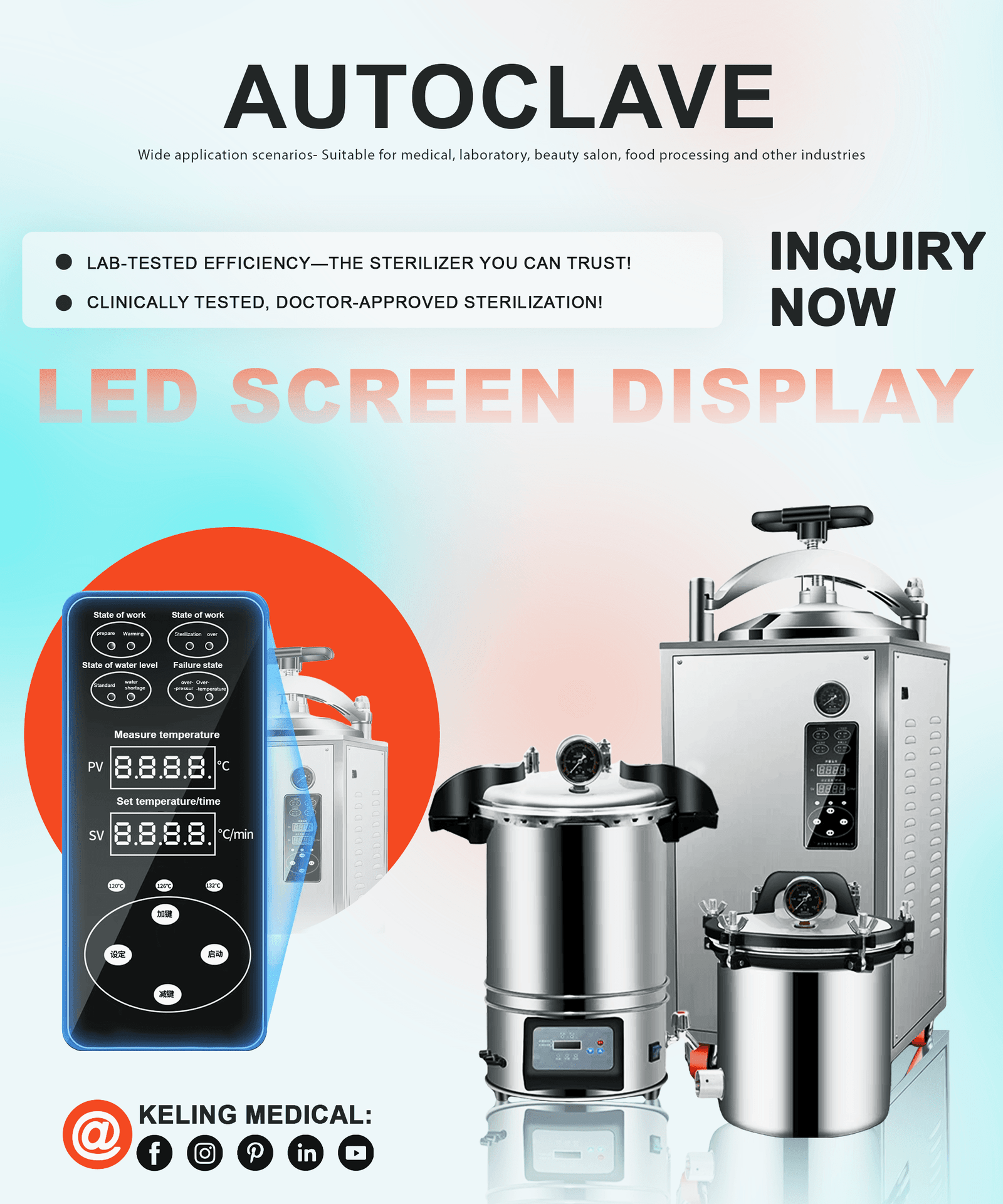
Medical device distributors along with procurement specialists and manufacturers must understand large industrial autoclaves’ capabilities and applications to ensure compliance with industry standards and achieve optimal operational efficiency. This article analyzes the structure, uses, and advantages of large industrial autoclaves and examines their importance in sectors requiring high-volume production.
Large industrial autoclaves serve as high-capacity machines that sterilize and process materials through steam, pressure, or alternative methods. These machines are constructed for extensive workloads unlike smaller autoclaves which makes them perfect for high-volume industries.
These machines find their primary application in settings that demand massive production capabilities along with sterilization or material curing functions while maintaining strict quality standards and industry regulation adherence.
The design of large industrial autoclaves focuses on durability, efficiency, and customization to satisfy the distinctive needs of different industries. This section outlines the essential design features and specifications of the autoclaves.
The spacious chambers of large autoclaves allow for the processing of bulk loads and high-volume items.
Their capacity varies between several hundred liters to thousands of liters to meet specific industry needs.
The vessel is built from premium stainless steel which enables it to endure extreme pressure as well as temperature conditions.
Corrosion-resistant materials ensure durability and long-term performance.
This system features sophisticated control mechanisms that enable exact regulation of temperature, pressure and cycle duration.
Automation reduces manual intervention, enhancing productivity.
Customized autoclave designs fulfill specific industry requirements through features like multi-door systems or specialized loading mechanisms.
Choose between vertical or horizontal orientations depending on your facility layout.
The latest large autoclaves feature energy-saving technology which helps to decrease operational expenses.
For a deeper understanding of the basic functionality of industrial autoclaves, refer to our article on Industrial Autoclave Machines.
Various high-demand industries utilize large industrial autoclaves because they function as versatile machines. Below are some of their primary applications:
Aircraft components use composite curing to process carbon fiber and other composite materials.
The process maintains aerospace parts with both structural strength and lightweight features.
The sterilization process for canned foods protects consumers and increases the product’s shelf life.
Pasteurization serves as a processing method for mass-producing beverages and packaged foods.
The system sterilizes large volumes of medical waste to ensure safe disposal.
Meets regulatory requirements for waste treatment.
Through vulcanization rubber products gain improved durability and elasticity.
The plastic curing method delivers consistent curing across all plastic components.
The pharmaceutical industry conducts sterilization processes for large quantities of products which include both glassware and packaging materials.
High-volume industries benefit from multiple advantages when they invest in large industrial autoclaves.
Capable of processing large loads in one cycle this equipment reduces total processing time.
Streamlines production workflows and minimizes downtime.
Sterilization or curing becomes more cost-effective when materials are processed in larger quantities.
Energy-efficient designs reduce operational expenses.
The process delivers consistent sterilization and curing results for all materials.
Conforms precisely with rigorous industry requirements to guarantee both safety and quality.
Supports growing production demands without compromising performance.
Advanced safety features safeguard operators while maintaining regulatory compliance.
For insights into the cost implications of large industrial autoclaves, visit our guide on Industrial Autoclave Cost.
High-volume industries depend on large industrial autoclaves because these machines deliver unmatched capacity along with top-notch efficiency and reliability. Aerospace organizations as well as food processing and waste management businesses can achieve necessary production scalability and performance through the use of these machines.
It is critical to evaluate size, capacity and customization options when selecting a large industrial autoclave to match your operational requirements. Keling Medical delivers premium autoclave solutions that align precisely with your specific industry needs.
Large industrial autoclaves can range from several hundred liters to thousands of liters, with custom sizes available to meet specific needs.
Modern autoclaves incorporate energy-saving technologies such as optimized steam generation and insulation to minimize heat loss.
Yes, but it’s crucial to ensure that the materials being processed require similar sterilization or curing conditions.
Industries like aerospace, food processing, medical waste management, and pharmaceuticals benefit significantly from large autoclaves.
Contact us at Keling Medical for a tailored quote based on your specific requirements.
For more information about large industrial autoclaves or to request a quote, contact us today:
Email: inquiry@shkeling.com
WhatsApp: +8618221822482
Website: https://autoclaveequipment.com/
Our team at Keling Medical is ready to assist you with all your large industrial autoclave needs.

The autoclaving process serves as an essential sterilization practice utilized across medical, laboratory, and research facilities to protect glassware and instruments through effective sterilization. High-pressure steam eliminates pathogens during this

The autoclaving process serves as an essential sterilization practice utilized across medical, laboratory, and research facilities to protect glassware and instruments through effective sterilization. High-pressure steam eliminates pathogens during this
The autoclaving process serves as an essential sterilization practice utilized across medical, laboratory, and research facilities to protect glassware and instruments through effective sterilization. High-pressure steam eliminates pathogens during this
The autoclaving process serves as an essential sterilization practice utilized across medical, laboratory, and research facilities to protect glassware and instruments through effective sterilization. High-pressure steam eliminates pathogens during this
The autoclaving process serves as an essential sterilization practice utilized across medical, laboratory, and research facilities to protect glassware and instruments through effective sterilization. High-pressure steam eliminates pathogens during this
The autoclaving process serves as an essential sterilization practice utilized across medical, laboratory, and research facilities to protect glassware and instruments through effective sterilization. High-pressure steam eliminates pathogens during this